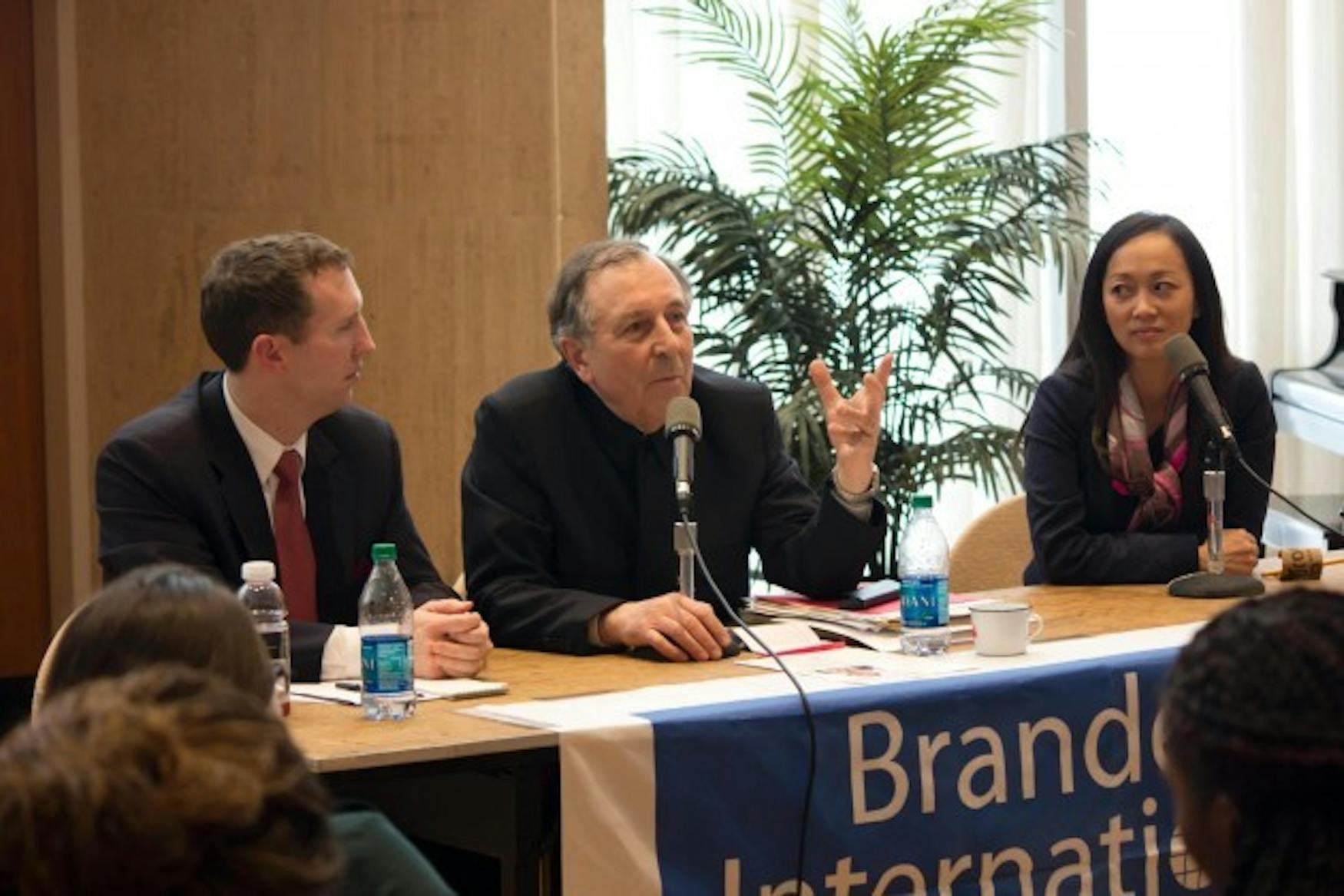Experts discuss U.S. and North Korean relations
Last Tuesday, a panel spoke about the political climate of North Korea and its relations with the United States during an event titled "A Closer Look at North Korea" in the Rapaporte Treasure Hall.
The panel featured Friedrich Lohr, former German ambassador to North Korea, and Sue Mi Terry, senior research scholar at the Weatherhead East Asian Institute at Columbia University and former National Intelligence Fellow at the Council on Foreign Relations. The event was moderated by Nicholas Hamisevicz, director of Research and Academic Affairs at the Korean Economic Institute of America, and was sponsored by the KEI and the Brandeis International Journal.
According to its website, the KEI is an external organization that seeks to "broaden and deepen understanding among Americans about developments in Korea and the value of the U.S.-Korea relationship" through publications and outreach programs.
With respect to North Korea's recent threats to launch nuclear missiles, Terry began by asking whether these assertions represent "more blustering" or something more serious. Compared to past threats, she said, "certainly, the rhetoric has intensified" in a manner that is "noteworthy." Despite theories that the threats are unfounded due to the "untested" command of current ruler Kim Jong-un, who assumed office in December 2011, "the regime is not suicidal," she continued.
Terry noted that "there is no one single truth" or agreement when it comes to North Korea and that scholars studying the same material come to "vastly different conclusions." In Terry's opinion, North Korea will not reenter talks with the U.S. to relinquish or halt production of nuclear weapons. She added that theories of internal factional fighting within the North Korean government are "wishful thinking," as the "elites have a vested interest in keeping this system going" and rallying together and as it is important for Kim Jong-un to "come out looking strong and mighty."
Lohr echoed Terry's point about the varying scholarly opinion on North Korea, adding that he felt as if he were "following a moving target" in his research, as each time he drew a conclusion, the situation changed.
He said when trying to determine "what makes North Koreans tick" to keep in mind their goal of "regime preservation" and maintaining the current leadership structure.
"But there are limits to social engineering" and indoctrination, Lohr said, adding that North Korea is "the most confused country [he's] ever seen in Asia."
North Korea's presentation of itself to both its own population and foreign observers is a "mosaic" of real and fake elements, said Lohr. "It's very close to the real world, and also very far removed," he added, and it is the job of the foreign observer to piece together elements of the mosaic and try to make sense of them.
In response to an audience question about how the panelists believe the U.S. should respond to these threats, Terry said that the Obama administration should not engage, as North Korea's options are in actuality quite limited should it lose its relationship with the U.S. She added that it is important for the U.S. to keep in mind that its policy toward North Korea is not isolated but related to every other aspect in the political sphere.



Please note All comments are eligible for publication in The Justice.